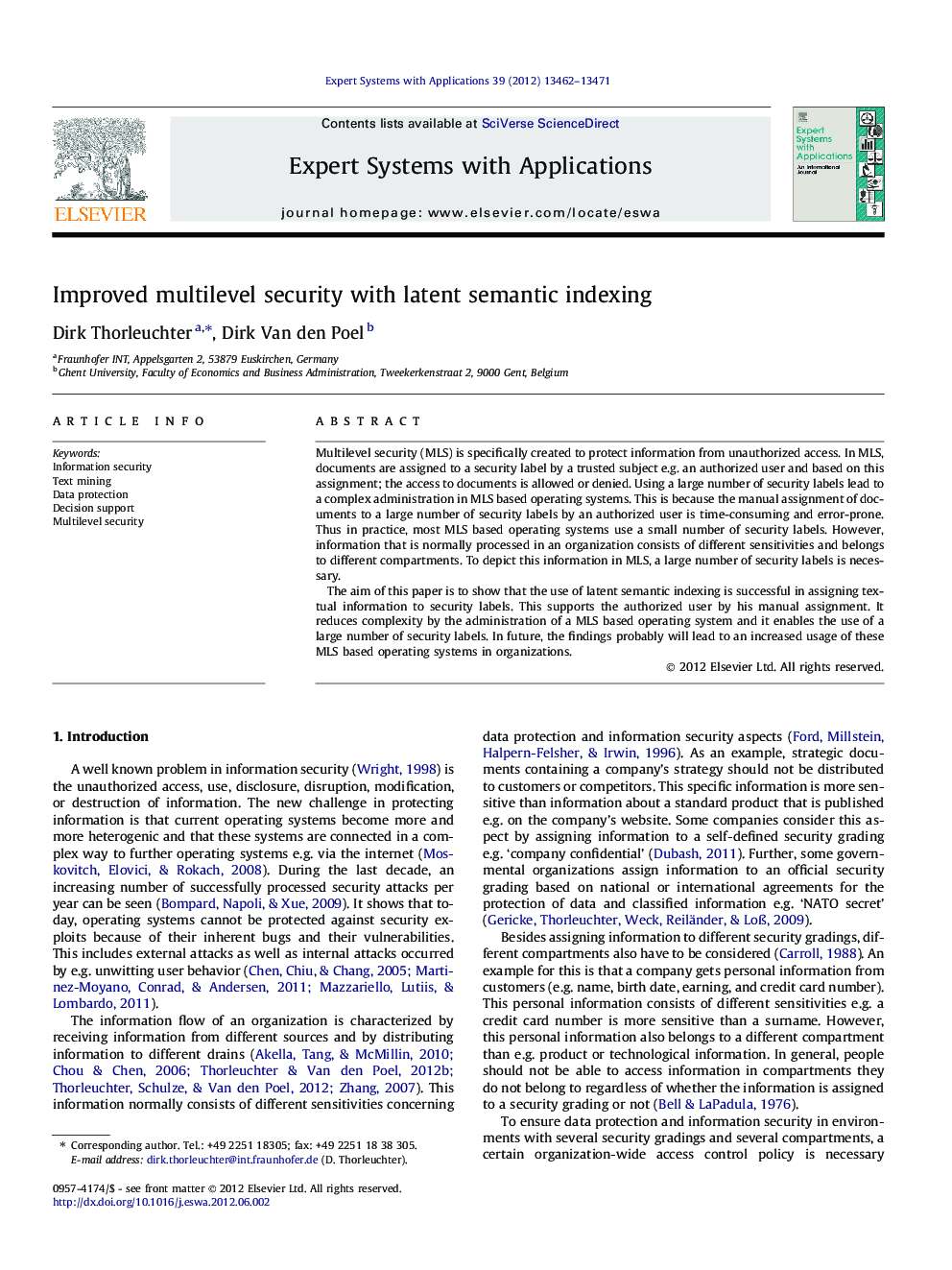| Article ID | Journal | Published Year | Pages | File Type |
|---|---|---|---|---|
| 383320 | Expert Systems with Applications | 2012 | 10 Pages |
Multilevel security (MLS) is specifically created to protect information from unauthorized access. In MLS, documents are assigned to a security label by a trusted subject e.g. an authorized user and based on this assignment; the access to documents is allowed or denied. Using a large number of security labels lead to a complex administration in MLS based operating systems. This is because the manual assignment of documents to a large number of security labels by an authorized user is time-consuming and error-prone. Thus in practice, most MLS based operating systems use a small number of security labels. However, information that is normally processed in an organization consists of different sensitivities and belongs to different compartments. To depict this information in MLS, a large number of security labels is necessary.The aim of this paper is to show that the use of latent semantic indexing is successful in assigning textual information to security labels. This supports the authorized user by his manual assignment. It reduces complexity by the administration of a MLS based operating system and it enables the use of a large number of security labels. In future, the findings probably will lead to an increased usage of these MLS based operating systems in organizations.
► Supporting the administration of a multilevel security operating system. ► Used latent semantic indexing to extract latent semantic concepts from documents. ► Used logistic regression to assign documents to a security label based on the concepts.
